In November 2022, the Chancellor of the Exchequer revealed the Autumn Budget, which reversed many of the changes that had been announced as part of the Mini-Budget two months earlier. Many of these changes will have minimal impact on Charities, however some of the key information from the budget is detailed below, along with other upcoming changes previously announced.
Payroll Taxes
As from 1 April 2023:
- The National Living Wage and National Minimum Wage will increase.
- The Personal Allowance and Higher Rate Threshold for Income tax will both be frozen at the same level as 22/23
- The National Insurance thresholds will also remain fixed
- The threshold for the Additional Rate will reduce from £150,000 to £125,140
- For individuals, the dividend allowance will reduce to £1,000 (and to £500 from April 2024)
- The Capital Gains annual exempt amount will reduce to £6,000 (and to £3,000 from April 2024)
- The National Insurance Employment Allowance will remain at £5,000
VAT
HMRC have updated the VAT penalty regime, and the changes will come into effect for any accounting periods beginning on or after 01 January 2023. These changes affect all entities registered for VAT, including those who submit nil or repayment returns.
The new regime uses a points-based system to apply penalty fines and interest. Details of the new regime can be found at Prepare for upcoming changes to VAT penalties and VAT interest charges – GOV.UK (www.gov.uk).
It is worth noting that the registration threshold for VAT has been frozen at £85,000 until at least April 2026.
In light of recent VAT cases, HMRC have published “Revenue and Customs Brief 10 (2022)” to clarify updates to its policy when it comes to identifying business activities. Per the Brief, a two stage approach is used and an activity is considered to be an “economic activity” if:
- Stage 1: The activity results in a supply of goods or services for consideration
This requires the existence of a legal relationship between the supplier and the recipient. The first step is to consider whether the supply is made for a consideration. An activity that does not involve the making of supplies for consideration cannot be business activity for VAT purposes.
- Stage 2: The supply is made for the purpose of obtaining income therefrom (remuneration)
Where there is a direct or sufficient ‘link’ between the supplies made and the payments given, the activity is regarded as economic. There is a distinction between consideration and remuneration, such that simply because a payment is received for a service provided does not itself mean that the activity is economic. For an activity to be regarded as economic it must be carried out for the purpose of obtaining income (remuneration) even if the charge is below cost.
Other Taxes
HMRC have published updated guidance in the wake of Covid-19 that allows donors to covert loans or unwanted refunds to donations without the funds having to be returned and re-gifted. It is accepted that a waiver can be issued by the donor, and the funds can be treated as a donation from the date of the waiver. If this is done, the charity can claim gift aid on the funds.
From April 2023, corporation tax will increase to 25% for entities with profits over £250,000 with a tapered rate applying to organisations with profits between £50,000 and £250,000. For charities, the non-primary purpose trading limit remains at £80,000 (for charities with annual income over £320,000).
Finally, there have been several instances lately of charity subsidiaries not paying over profits to the parent charity, but still declaring the donation on their tax return. As a reminder, the donation should be paid in cash within 9 months of the year end.
Get in touch or request a call back:
Call 0330 223 6400 or complete the form to make an enquiry or request a call back (* indicates a mandatory field).



